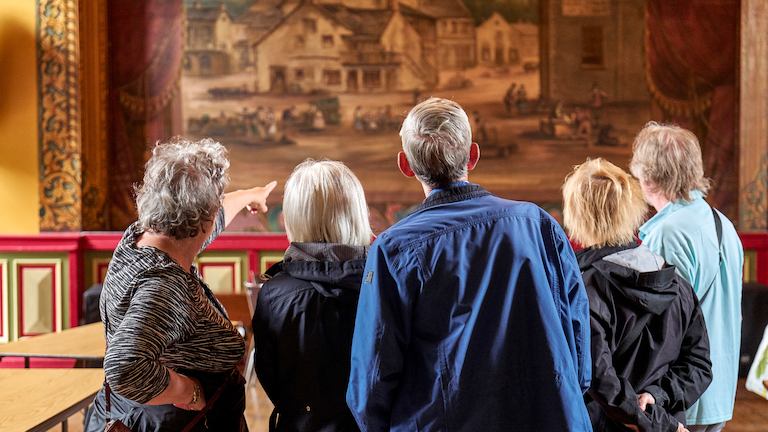The diversity of those taking part in the exchange was fantastic, providing an opportunity to share success stories and good practice, discuss challenges and discover that there is much common ground across our cities when considering not just how we create and sustain age-friendly cultural programmes but also why we should make culture and heritage a key part of life for individuals as they age. We heard from older people themselves; this highlighted the desire of many older people to be active creators of cultural activity rather than passive consumers and of the huge diversity in older audiences – older audiences are as diverse in their needs and desires as the young people that I more usually work with.
I’m sure all the participants in the programme went away with much to reflect on, but in particular I was struck by these three things:
- Projects do not need to be incredibly innovative or financially demanding to engage older audiences successfully in accessing and shaping culture. Smaller grassroots projects that connect older people, communities and culture can be just as successful in engaging people at different life stages.
- Age-friendly activity should be based on what older people desire and wish for, rather than simply what they need.
- As arts practitioners and professionals working to create age-friendly cities, we must develop ways to record and share the narratives of those engaging with culture and heritage. Measuring success in terms of numbers cannot effectively communicate the impact of engagement in culture or heritage at any life stage and we do not capture the real value of the work we do if we only record the facts and figures. Capturing the narratives of those participating in cultural programmes and understanding how we share these narratives with funders, commissioners and policymakers is crucial.
Sunderland continues to strive for excellence in the development and delivery of age-friendly cultural programmes, in line with our strategy of becoming a city that is all-age friendly. In coming months, we will be sharing and embedding our learning from the Age-Friendly Cultural Exchange Programme to ensure that culture and heritage are central to ageing better in Sunderland.



